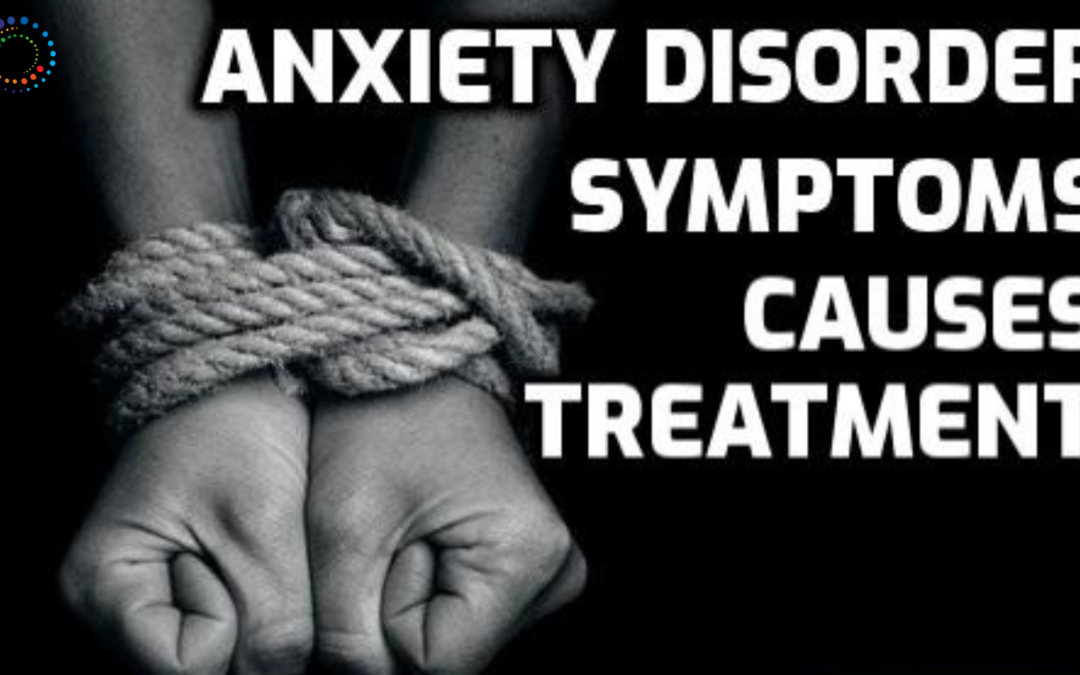The ‘A’ word -anxiety- has a bigger impact on controlling the daily lifestyle of the people suffering from it. People dealing with this mental condition can try to control the situations without proper anxiety treatment. However, ignoring the feelings can only worsen things. At times, anxiety disorders can restrict day-to-day life functioning, while it is also accompanied by panic attacks after and trigger severe repercussions. Our top psychiatrist in Delhi specializes in apprehending the cause of anxiety in individual patients and providing effective solutions.
What is anxiety?
Anxiety is nothing more than a strong feeling that causes nervousness, fear, worry, confusion, and other sidelining health effects. As a response to stressful situations, people discover these anxiety feelings and such thoughts or attributes don’t go away immediately. It tends to come back after a certain interval and even lead to making the blood pressure go high. The anxiety attack that lasts for a short term can cause changes in breathing patterns, increased heart rate, etc.
If the episodes last longer, anxiety stimulates certain hormone release that can make a person feel nauseous, breathlessness, dizziness, depression, and so on. If left untreated for a longer period, these situations can have a major impact on the overall body functioning, leading to severe cardiac events, weak immune system, irritable bowel syndrome, and other chronic issues. Our mental health specialist sees to it that every patient receives a diagnosis and needed solutions to get rid of anxiety disorders. So if you are looking for depression treatment in Delhi, get a consultation from our mental health professionals.
Types of Anxiety?
Anxiety disorders have several patterns depending on the seriousness of anxiety episodes, behavioral impacts, etc. on a person. Anxiety disorder can be broadly classified into 9 different types depending on such factors.
1. Agoraphobia
It is a complex condition that causes one to panic being in places, particularly open spaces, they perceive to be difficult to escape. It can occur in people in their mid-20s, and evidently, the episodes make them unable to control tactile and visual senses. As such, people refrain from going to open and crowded places, and like to live in solace (specifically in their own room). It can have a direct impact on a person’s behavior leading to low self-esteem, and other emotional effects such as depression, fear of death and humiliation, panic attacks, and many more.
2. Generalized Anxiety Disorder
This type of anxiety disorder leads to a worrisome state of mind by anticipating the impact of a disaster on their health, family, finance, work, and other subjects. It is often misunderstood as a natural mood swing or an exaggeration of feelings by others, hence, remaining undetected and untreated. Studies suggest that people with GAD develop weaker brain control in the production of the amygdala (emotional response hormone), which is why they may not stop overthinking, leading to stressful, emotional effects.
3. Obsessive-Compulsive Disorder (OCD)
The two terms “obsessive” and “compulsive” defines it all. People with OCD tend to do things (activities) repetitively, thinking of it as a solution to their problems. Instances of OCD’s repetitive behavior include hand washing, cleaning, counting, etc. is seen as a temporary relief by the patients. However, this can increase anxiety in them.
4. Panic Disorder
People with panic disorder might come face to face with recurring episodes of chest pain, shortness of breath, dizziness, abdominal distress, etc. as a result of panicking after being in certain unwanted situations or phases.
5. Post-Traumatic Stress Disorder (PTSD)
People experiencing intense events, accidents, or phases in their life can have a deep impact on their mental health. Post-traumatic stress disorder (PTSD is the chief characteristic of people meeting with terrifying life events, after which they can develop symptoms like self-harm, violent response, etc. PTSD requires immediate anxiety treatment to help patients recover from going through such episodes.
Fact check – Did you know over 54% of World War II veterans with deteriorated mental health suffered from PTSD.
6. Selective Mutism
It is a childhood anxiety disorder with a characteristic speaking inability or communicative disability which comes as a direct response to their social environment (particularly schools). Making environmental settings more comfortable, friendly, secure, etc. can help them more relaxed and enhance their communication.
7. Separation Anxiety Disorder
Generally, this type of anxiety disorder is associated with people who suffer separation from their loved ones. It can cause severe emotional implications like sadness, concentration difficulty, depression, and many more.
8. Specific Phobia
When people have an intense fear of specific objects or situations, their mind perceives it as a threat encountering those particular specific phobias. It might lead to experiencing unusual fear and aversion to such phobic situations.
9. Social Phobia (or Social Anxiety Disorder)
People finding it difficult to cope with social factors might develop self-consciousness with thoughts of being judged by others. When the situation turns to an obsessive phobia, people might find it difficult to give themselves social exposure.
Symptoms of Anxiety?
Everyone encounters anxiety in their life, yet, people with an anxiety disorder might particularly face extreme consequences. Here are some of the symptoms which need immediate anxiety treatment.
- Tensed emotional response – restlessness, nervousness, etc.
- Change in breathing pattern causing breathlessness and hyperventilation
- Uncontrolled perspiring
- Increased heart palpitation
- Dizziness and weakness
- Concentration difficulty
- Panic attacks due to an intense feeling of fear and danger
- Shivering
- Insomnia
- Developing repetitive behaviors
- Gastrointestinal problems
Causes of Anxiety?
Anxiety can be triggered by multiple factors and vary from person to person. However, below are listed some causes that might increase your exposure to anxiety.
- Extreme traumatic event
- Stressful lifestyle induced by the job, drug-effect, finance, etc.
- Effects of other mental disorder
- Drug and alcohol abuse
- Genetic disorder
- The direct impact of chronic diseases, such as thyroid conditions
Treatment of Anxiety?
Anxiety treatment is dependent on the level of severity. In general, patients with minimal anxiety disorders are advised to undergo psychotherapies like cognitive behavioral therapy to induce changes in their way to turn negative thoughts into positive ones. This type of anxiety treatment helps people control their emotional responses and manage anxiety. Often patients with difficulty managing anxiety disorder can be prescribed antidepressants, anti-anxiety drugs, seizure-relieving drugs, and blood pressure drugs.
Looking for anxiety treatment in Delhi, we are specialized in offering the best counseling and solutions to improving your mental health. Visit some of the most renowned mental health experts and talk to them today.




Recent Comments